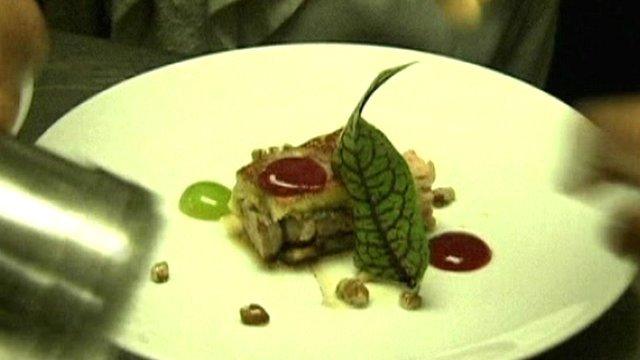Foie gras ban: New York restaurateurs enraged by 'unjust and unfair' measure
- Published
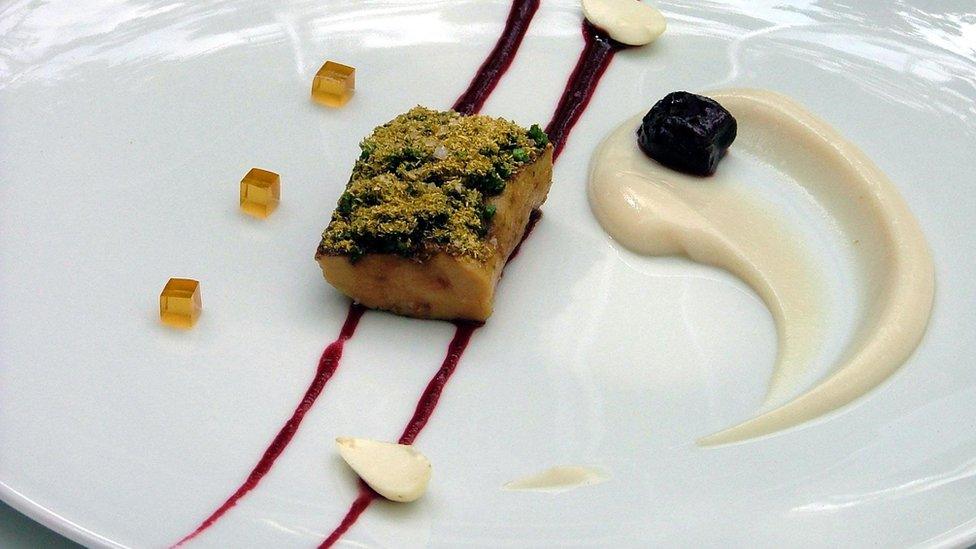
Foie gras is seen as a delicacy by some and as the product of cruelty by others
New York's proposed foie gras ban has been met with fury by the food industry, with one wholesaler claiming it could backfire.
Ariane Daguin from food manufacturer D'Artagnan said chefs were likely to order more "because they are so mad".
On Wednesday the city council voted to ban sales of the controversial product, a move hailed by animal rights groups.
Foie gras is made from the livers of ducks and geese that have traditionally been force-fed corn.
The law, which would be introduced in 2022, now needs to be signed into effect by Mayor Bill de Blasio.
What is the food industry saying?
Ms Daguin from D'Artagnan told the BBC she thought it was a "very bad" decision.
"There are 1,000 restaurateurs in New York City who have foie gras on their menu right now. They are all very incensed," she said.
Izzy Yanay, co-founder and general manager of Hudson Valley Foie Gras, one of New York's state major foie gras producers, meanwhile told AFP the industry would fight back.
"We're going to kick their ass in court."
How did the city's decision come about?
Council members approved the ban by 42 votes to six.
Jeremy Unger, spokesman for council member Carlina Riviera, who introduced the bill, said: "The council is banning a really cruel and inhumane practice."
Those found in violation of the law will be fined between $500 (£386) and $2,000.
Matthew Dominguez from campaign group Voters for Animal Rights said Wednesday's vote marked a "historic day for New York City".
How is foie gras produced?
While foie gras can be produced by natural feeding, in France it must be made by a process known as gavage in which ducks and geese are force-fed corn through a tube. The force-feeding occurs for about two weeks after the animals reach maturity. The practice is banned in some countries.
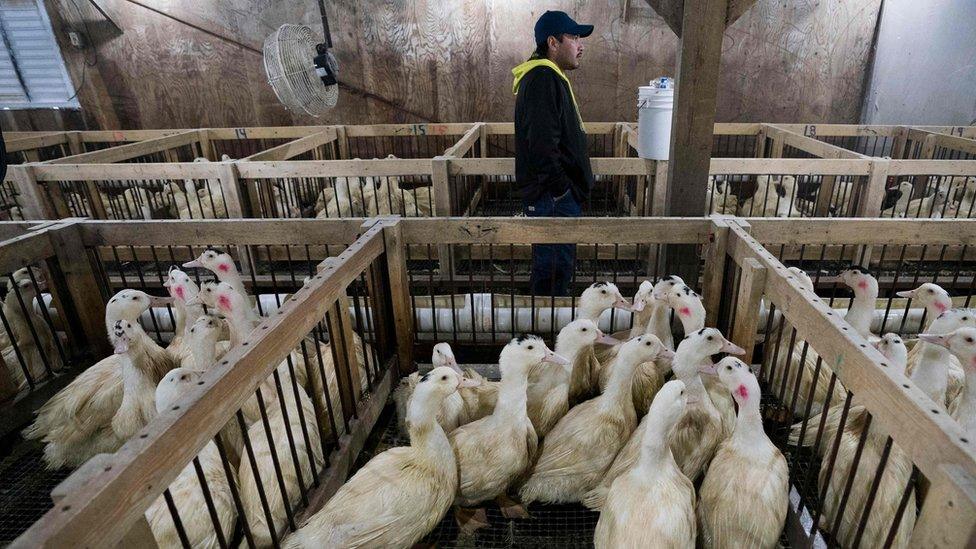
Farmers in New York claim they use humane tactics to feed the animals
However Ms Daguin said the farms she uses feed the ducks "without stress and without harm".
"These farmers respect the animals get good results because they do not stress the animals out. I have visited them several times and I know and am convinced in my heart that we are not harming those ducks," she said.
"This law is unfair, unjust and we think illegal."
She said that council members had been invited to tour the farms ahead of the vote but says not one member visited.
New York isn't the first city to ban the product. California issued a ban on foie gras in 2012.
Chicago issued a ban in 2006 which was reversed two years later after then-mayor Richard Daley called it the "silliest ordinance" ever passed in the city.
The decision to prohibit the sale of Foie Gras was signed into law in 2004, and included an eight-year grace period, as Janey Mitchell reports
- Published14 June 2017
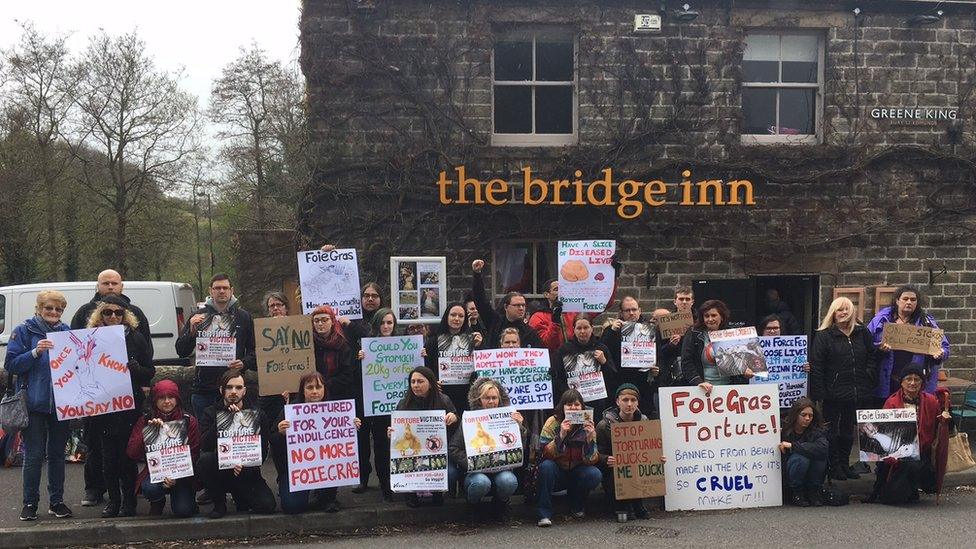
- Published20 November 2018
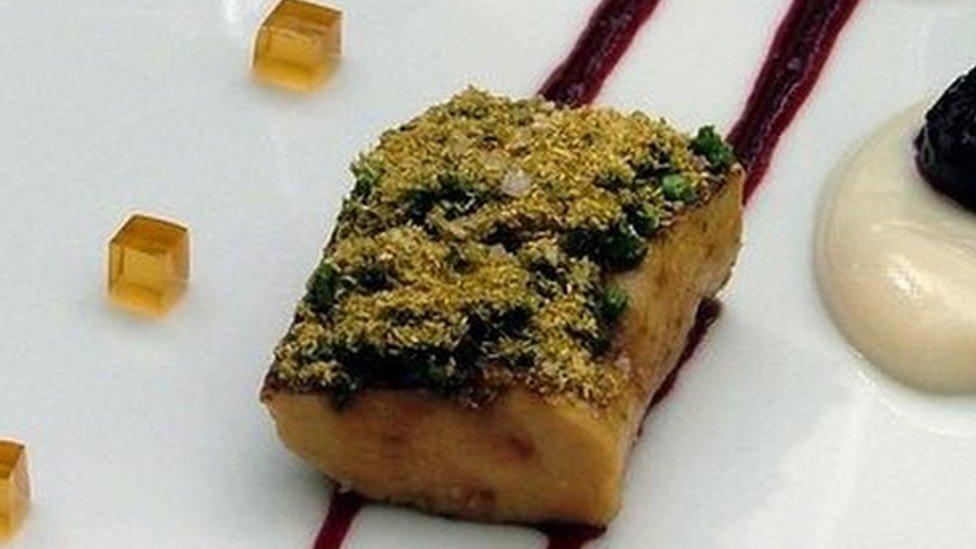
- Published7 June 2012
